Have you ever experienced that frightening moment when your jaw suddenly freezes up and you can't open your mouth properly? This condition, known as lock jaw or trismus in medical terms, affects millions of Americans and can make simple activities like eating, speaking, or yawning a painful challenge. Estimates are that 5-12% of people experience a lock at some point in their lifetime. But what is lockjaw? What's causing it, and how can you fix it? Let's take a closer look at this this dental problem, understand the jaw, and figure out what to do if a lock suddenly happens to you.
What is Lock Jaw?
Research from the American Dental Association shows that about 10 million Americans experience some form of temporomandibular joint (TMJ) disorder, with lock jaw being a common symptom. The severity ranges from mildly annoying to severely debilitating, depending on what's causing it.
A lock or jaw lock is when your jaw becomes stuck and doesn't open properly. A lock occurs due to issues with the temporomandibular joint (TMJ), a hinge that connects your jaw to your skull. This joint allows you to open and close your mouth to talk, chew, and yawn. According to the National Institute of Dental and Craniofacial Research, women experience TMJ disorders and lock jaw more frequently than men. If something goes wrong with the TMJ, you can get a lock in two different ways:
Open Lock
Your mouth is left open, and you can't completely close it. And your teeth may not be able to meet, and you may be unable to chew or speak properly.
Closed Lock
Your jaw remains locked closed, limiting the range of how far you can open your mouth. Little if any, you may have trouble getting two fingers between your teeth.
Your TMJ also has a little disc, which helps keep your jaw moving smoothly. If this disc becomes displaced, your jaw might lock. Many events can cause the disc to move, resulting in a jaw lock. These include:
TMJ Disorders
TMJ disorders occur when the temporomandibular joint becomes inflamed or damaged. This frequently happens due to:
- Teeth grinding (bruxism)
- Jaw clenching, especially during stress
- Arthritis in the joint
- Structural problems with the jaw
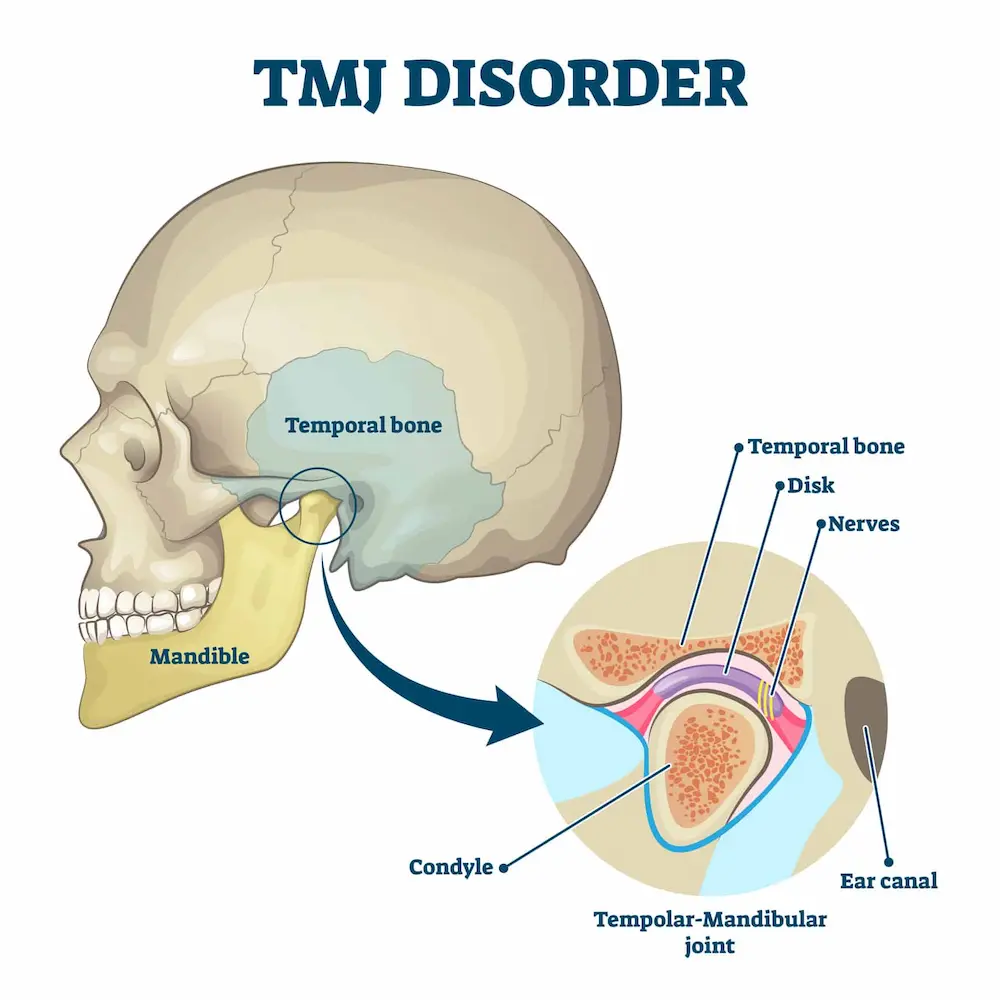
Anatomical view of the temporomandibular joint (TMJ)
Muscle Spasms
Your jaw muscles can tighten involuntarily, particularly after:
- Keeping your mouth open for extended periods during dental work
- Excessive jaw use or strain
- Stress and anxiety
Infections
Certain infections can trigger protective muscle tightening that leads to lock jaw:
- Dental abscesses
- Severe throat infections
- Tetanus (rare in developed countries due to vaccination)
The Centers for Disease Control and Prevention explains that tetanus bacteria produce a toxin affecting nerve function, causing painful muscle contractions throughout the body, often starting with the jaw. Sometimes, a jaw lock can happen suddenly. Trying to unlock your jaw can be painful, and you never know if it's locked.
A locked jaw can often be traced to long-term issues such as stress and dental problems. And if you do lock your jaw, don't worry we'll cover what to do.
Recognizing Lock Jaw and TMJ Symptoms
Lock jaw presents several distinct symptoms beyond just difficulty opening your mouth:
Limited Jaw Movement
- Inability to open your mouth more than 1-1.5 inches
- Difficulty with normal eating, speaking, and oral hygiene
Pain and Discomfort
- Pain when attempting to open or close your mouth
- Discomfort ranging from mild to severe, sometimes radiating across the face
Unusual Sensations and Sounds
- Clicking, popping, or grating sounds when moving your jaw
- Muscle fatigue after minimal jaw movement
- Headaches, particularly around the temples
Additional Symptoms
- Facial pain or tenderness around the jaw joints
- Referred pain to the ears (sometimes with ringing sensation)
- Changes in how your upper and lower teeth fit together
- Difficulty chewing and swallowing
- Sleep problems due to pain or nighttime teeth grinding
If you notice these symptoms, especially if they persist for more than a few days, it's important to begin treatment as soon as possible to prevent the condition from worsening.
Other factors that could cause Lock Jaw
While issues with TMJ and muscle strain are the most common causes of a jaw lock, the disorder can also be caused by several other factors. Here are some usual causes of a lock.
Wisdom Teeth
The back set of teeth, known as the wisdom teeth, are the last to come in, and can cause a jaw lock in some cases. They may push against your jaw or become swollen if they grow incorrectly. Here's how wisdom teeth could contribute to a lock:
- When wisdom teeth get infected and swell, you may be unable to open your mouth due to a lock.
- Wisdom teeth may be misaligned and cause the jaw to shift out of place, preventing the jaw from being able to open or close correctly.
Getting rid of those wisdom teeth that give you a locked jaw could solve that problem and spare you other dental issues, such as teeth that don't fit and infections. If you end up with a lock, a dentist can help determine if your wisdom teeth might be the cause.
Inflammation
An injury, such as a fall or accident, can result in a lock or swelling of the jaw. Inflamed tissues around your jaw may limit its movement. This inflammation can make your jaw feel tight or stuck, resulting in a lock.
Teeth Grinding
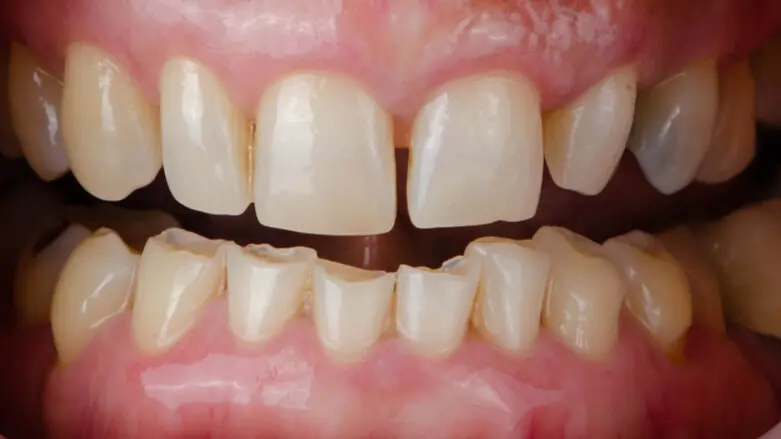
Bruxism causes teeth attrition
Your lock is exacerbated heavily by bruxism (grinding or clenching of the teeth). It can be brought on by stress, dental problems, or teeth not fitting together correctly. d Many people grind their teeth in their sleep and don't realize it, which can stress the jaw. Over time, this may lead to:
- Tension or pain in your jaw, neck, or face.
- Earaches or headaches.
- The teeth get worn down by attrition, and the bite is disrupted.
If bruxism persists, that may lead to a lock and is a possible indication of a TMJ (temporomandibular joint) disorder. A dentist can help you determine if grinding is causing harm to your jaw or giving you a lock.

All of these movements cause issues to your teeth and jaw
Tetanus (Rare)
A lock is also a symptom of a rare bacterial infection, tetanus. This infection attacks the nerves and muscles, causing them to go tight. With tetanus, a jaw lock is one of the warning signals. It's rare because so many people are vaccinated. If the pain from the lock worsens or your jaw locks, and you have not had a tetanus shot within 10 years, consult a doctor immediately.
What you can do at home today
If your jaw locks, stay calm. If you panic, you may tighten your jaw muscles, which won't help to release the lock. Step back, take a deep breath, and follow these exercises to shift your jaw softly:
Heat and Cold Therapy
- Warm compresses: Apply a warm, damp washcloth to your jaw for 10-15 minutes several times daily to relax tight muscles.
- Ice therapy: For acute pain and swelling, apply ice wrapped in a thin cloth for 10 minutes to reduce inflammation.
Pain Relief Medications
- Non-prescription anti-inflammatory medications like ibuprofen (400-800mg every 8 hours) can reduce both pain and inflammation.
- The Mayo Clinic recommends following package directions carefully and consulting healthcare providers if you have other medical conditions.
Gentle Stretching Exercises
Try this simple exercise:
- Place your thumb under your upper front teeth
- Put your index finger on your lower front teeth
- Gently guide your lower jaw downward to stretch the muscles
- Hold for 30 seconds
- Repeat 3-4 times daily
Massage and Relaxation
- Massage the jaw muscles using your fingertips in gentle circular motions
- Focus on the area in front of your ears and along the jawline
- Practice relaxation techniques like deep breathing or meditation to reduce overall muscle tension
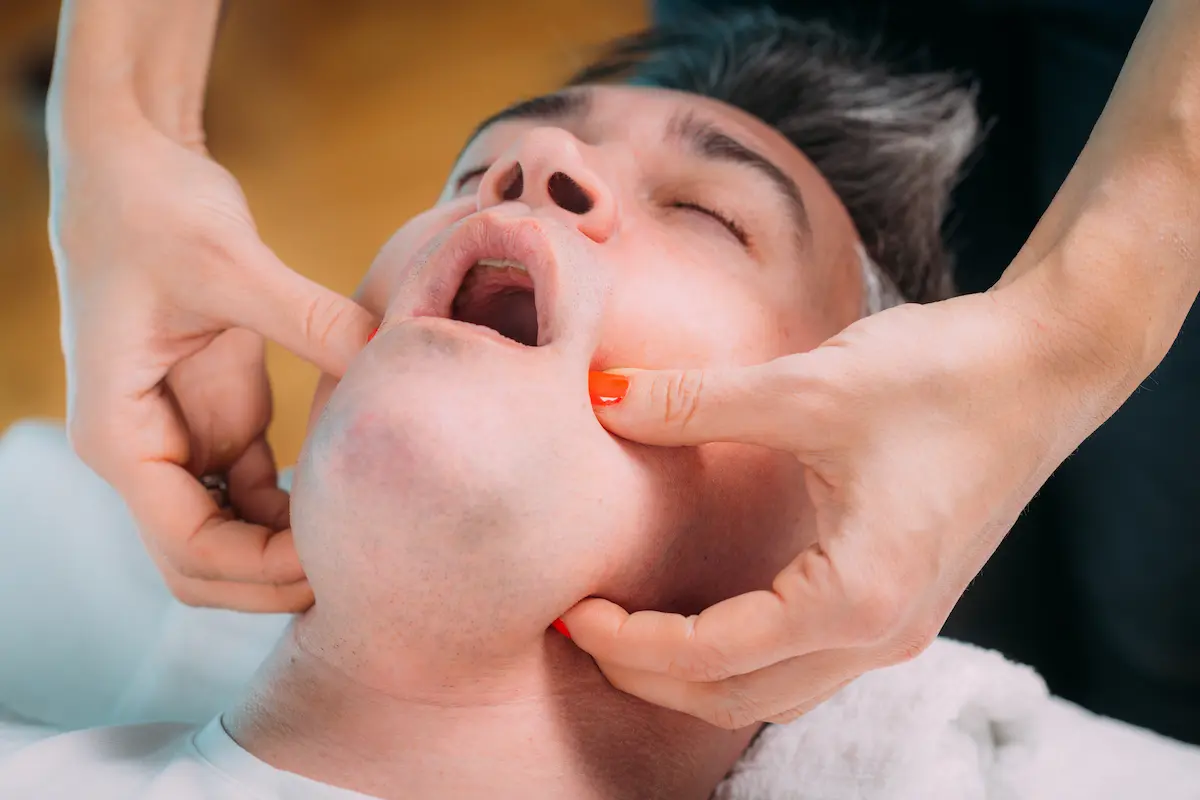
Demonstration of massage technique for relieving jaw tension and pain
What to Eat When You Have Lock Jaw
Your diet can significantly impact recovery from lock jaw. Here's what to focus on:
Best Foods to Choose
- Soft, nutritious options: Yogurt, smoothies, mashed potatoes, scrambled eggs, oatmeal, soft fruits
- Small, manageable portions: Cut food into tiny pieces requiring minimal chewing
- Protein sources: Protein smoothies, soft-cooked beans, fish, ground meat in sauce
Foods to Avoid
- Hard or crunchy items: Raw vegetables, nuts, hard candies, tough meats
- Chewy foods: Bagels, tough breads, chewy candies, gum
- Very sticky foods: Caramel, peanut butter, taffy
- Extremely hot or cold foods/drinks: These may trigger additional pain
Maintaining Nutrition
- Ensure your soft diet includes adequate protein, vitamins, and minerals
- Stay well-hydrated with water and non-acidic beverages
- Consider nutritional supplements if your dietary restrictions last more than a few days
Eating Habits That Prevent Jaw Pain
- Eliminate jaw-stressing habits like gum chewing and nail biting
- Take smaller bites when eating
- Give your jaw frequent rest periods during meals
Exercises to Alleviate Jaw Tightness
Loosening a Tight Jaw and Preventing Lock Jaw with simple exercises. Experiment with these two movements, but cease if you feel pain:
Smile Stretch
Stretch your smile to the maximum you can get without pain. Part your lips slightly, slowly by two inches. Take a deep breath, and then let it go. Repeat 5-10 times. This may alleviate the jaw stiffening from the lock.
Best Jaw Stretching Exercises for TMJ Relief
Press the tip of your tongue to the roof of your mouth. Do not push too much so that it hurts. Attempt to open your mouth as wide as possible. Slowly close it. Stop if it hurts. This helps to open your jaw to keep you limber.
To help keep your jaw muscles loose, perform these exercises several times daily. They can assist with a jaw lock and make your jaw feel better.
When to See a Professional
When home remedies aren't enough, these medical interventions can help:
Physical Therapy
- Specialized jaw exercises to restore normal movement
- Professional techniques including ultrasound, electrical stimulation, or therapeutic massage
Lock Jaw Treatment Options
- Custom night guard or splint to prevent teeth grinding
- Adjustments to address bite problems
- The American Association of Oral and Maxillofacial Surgeons notes that conservative, reversible treatments work for most TMJ cases
Prescription Medications
- Muscle relaxants to reduce spasms
- Stronger pain medications for severe discomfort
- Low-dose antidepressants to help manage chronic pain and improve sleep
Injection Therapies
- Corticosteroid injections directly into the joint to reduce inflammation
- Botox injections to temporarily paralyze overactive muscles causing lock jaw
- These typically provide relief lasting 3-6 months
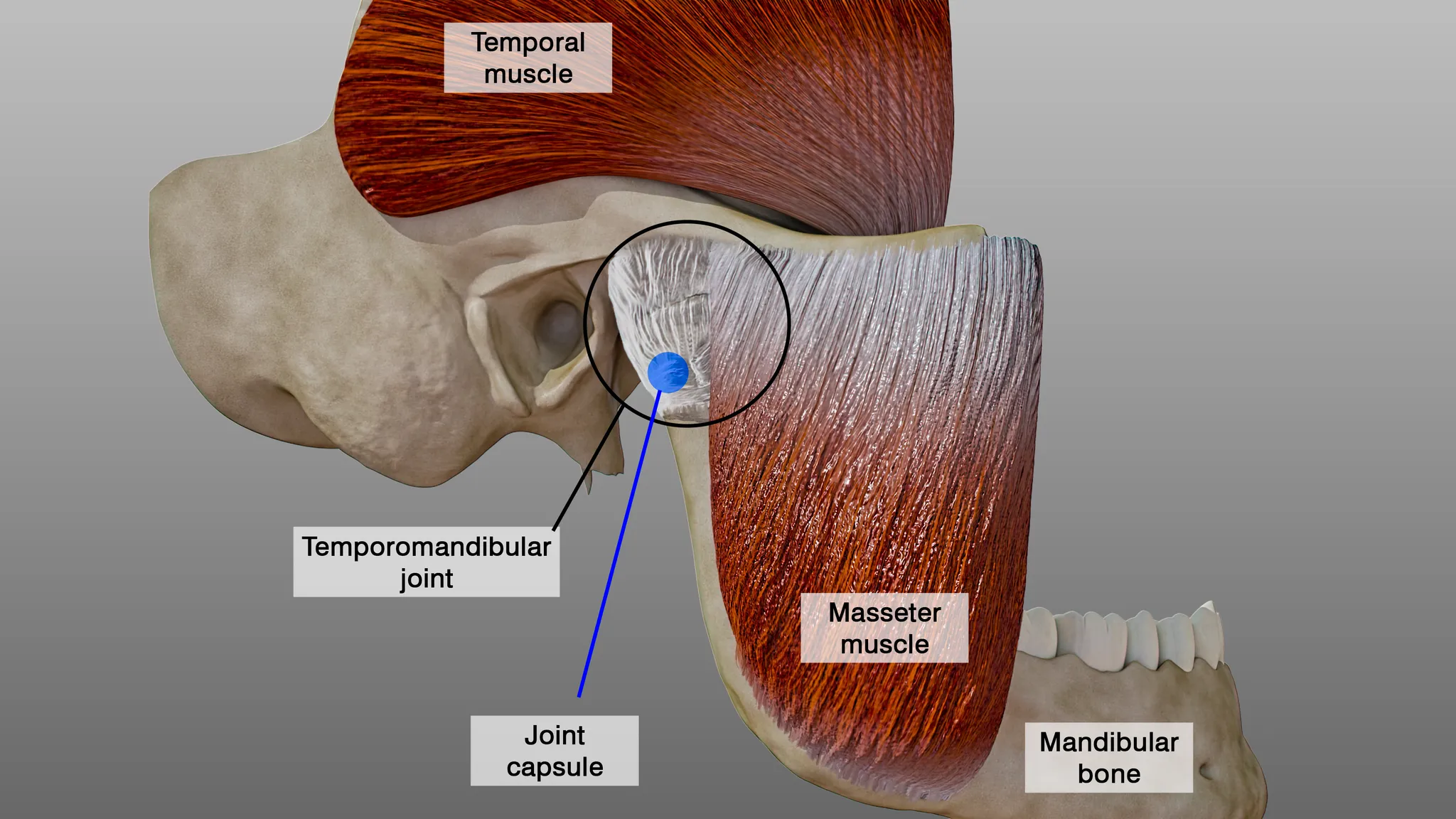
What Happens if You Don't Treat Lock Jaw?
Unlike other dental issues, you can't ignore a locked jaw, because it hurts and complicates everything. If you do not treat it, lock jaw can result in:
- Difficulty chewing or eating can affect your diet.
- Inability to breathe normally when your mouth can't open.
- Jaw, face, or neck pain or discomfort.
- Jaw dysfunction can lead to sleep problems, such as sleep apnea.
- TMJ damage: The jaw joint can wear out over time with prolonged lock.
The TMJ disc could lose its proper working order when the jaw lock is not treated. Bones may rub directly against bones in the jaw joint, leading to further pain and damage.
Daily tasks like eating or talking may be hurt because of the frequent locking problem. For example, biting an apple may become painful if the jaw joint is damaged. Seeing a dentist early can prevent these problems and keep your jaw healthy.
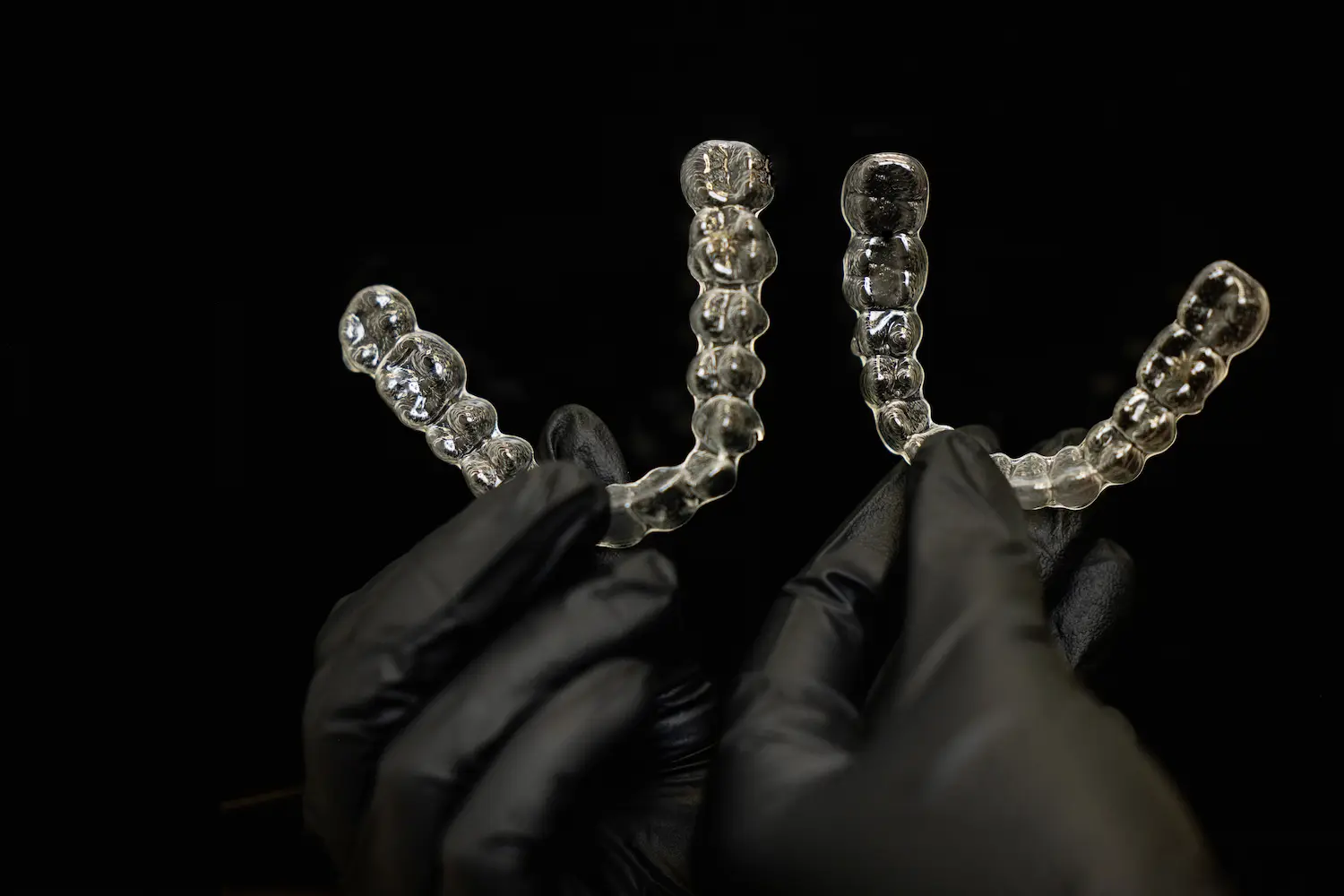
Custom night guard to prevent teeth grinding and TMJ strain
When to go to Urgent Care for Lock Jaw?
- Severe, unrelenting pain not responding to over-the-counter pain relievers
- Complete inability to open your mouth at all
- Lock jaw accompanied by high fever (over 101°F/38.5°C)
- Swelling extending down the neck or affecting breathing
- Jaw locking after a traumatic injury
- Sudden onset of lock jaw with facial weakness on one side (possible stroke symptom)
- Difficulty swallowing or managing saliva
Depending on severity and cause, a jaw lock can be a dental emergency. Call a dentist to see what to do if your jaw locks up for a couple of hours. They may examine your mouth, teeth, jaw, and the rest of your head and neck to help determine what may be causing the pain and recommend treatment.
The most straightforward strategy to combat lockjaw is to act fast. If you have a stiff jaw, hear clicking, or feel pain, schedule a dental appointment. Early treatment can halt lockjaw before it begins and keep your jaw and teeth healthy.





